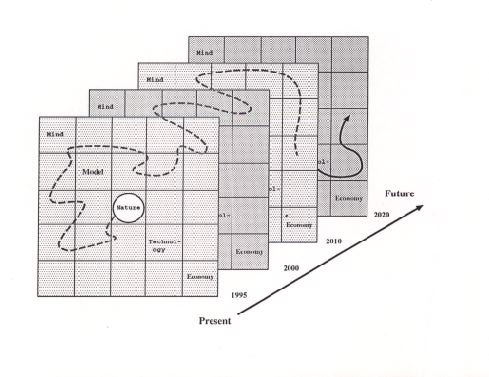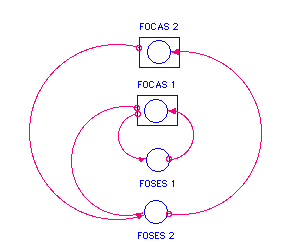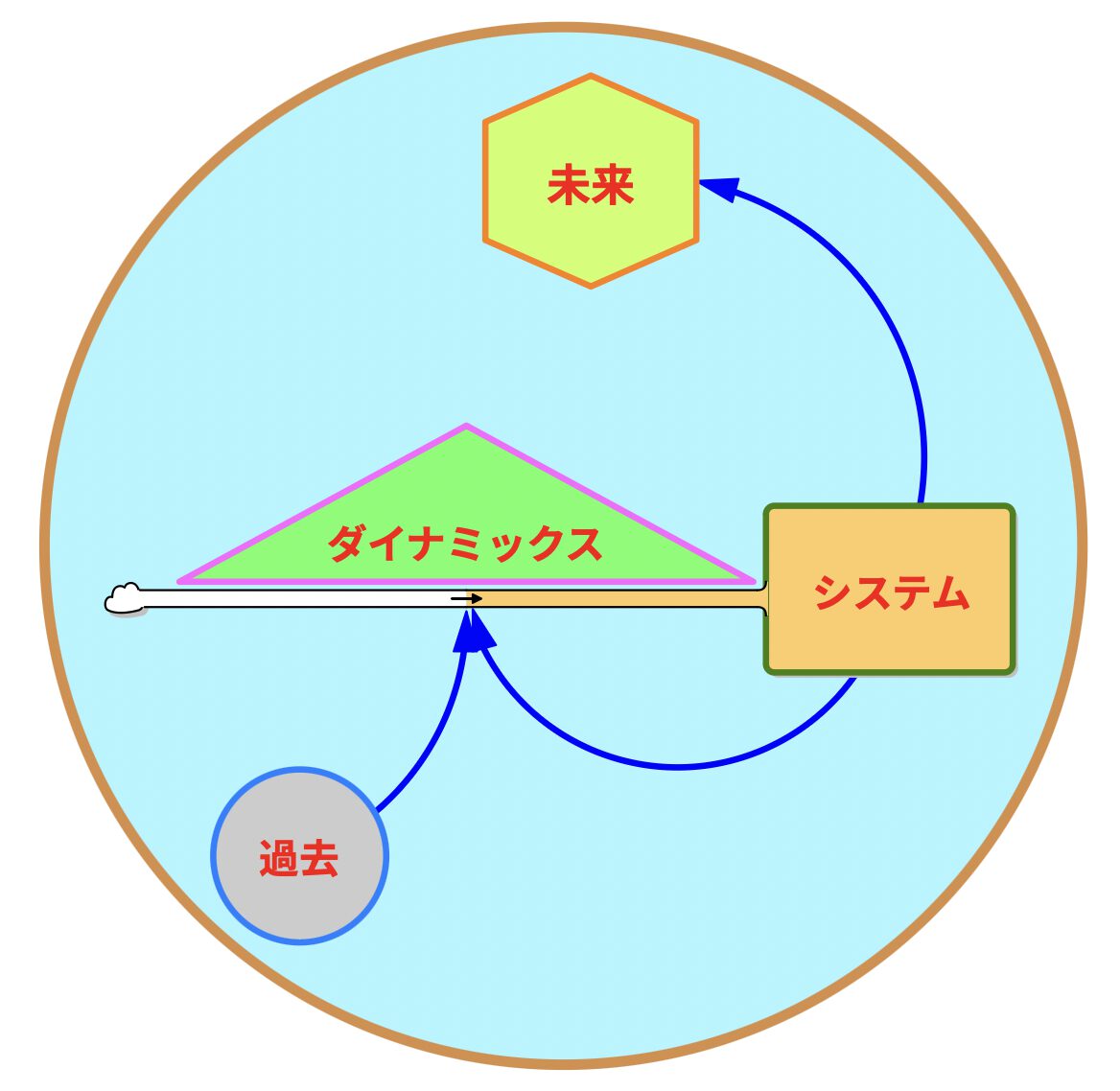未来志向複雑系適応システム (FOCAS) 研究
Future-Oriented Complex and Adaptive Systems
An Introduction to the FOCAS
This is an evolving and on-going framework of the FOCAS.
詳細は次の論文を参照ください。
- On the Future-Oriented Complexity and Adaptive Studies
FOCAS 研究の誕生とその概要を説明。 - Mapping the Future Higher Education
なおこの論文の改訂版が「Learning to Seek: Globalization, Govenance, and the Future of Higher Education, ed. by Majid Tehranian, James Dator, and Walt Anderson, Transaction Publishing, USA, 2006」 に収録されています。
1. Five Simple (and Complex) Building Blocks of FOCAS
Mind, Nature and Economy are three simple (and complex) building blocks of the FOCAS.
| Mind | ||
| Nature | ||
| Economy |
In the beginning Mind needs Model to understand Nature, and Model eventually influences the way Mind understands Nature. Thus, Model becomes another building block of the FOCAS. On the other hand, people need Technology to extract resources from Nature and sustain their Economy, and Technology itself eventually regulates the way Economy relates with Nature. Thus, Technology becomes another building block of the FOCAS. In this way, Mind, Model, Nature, Technology and Economy become five essential and wholistic building blocks of FOCAS.
| Mind | ||||
| Model | ||||
| Nature | ||||
| Technology | ||||
| Economy |
2. Positive and Negative Feedbacks
How do these five building blocks interact one another positively and negatively and form a complex whole?
Complexity and Adaptation Studies
| Mind | ---> | (P-N Feedbacks) | ---> | ---> |
| Model | ||||
| Nature | ||||
| Technology | ||||
| <--- | <--- | (P-N Feedbacks) | <--- | Economy |
Example 1
Take an internet technology and consider two fields of mind and economy(community). Questions we have to pose:
- What is an internet technology?
- How does it affect our mind and economy?
- How do/should mind and economy, in turn, affect the internet technology?

Example 2
Let us now consider a chaos theory as a model.
- How does chaos theory help understand our brain recognition process (mind) and vice versa?
- How does chaos theory explain a population dynamics and bio-diversity (nature) and vice versa?
- How can chaos theory help avoid engineering catastrophes (technology) and vice versa?
- How can chaos theory help explain unpredictable market prices (economy) and vice versa?
3. Missing Fields of Study
Can you identify or create missing fields of research at the crossing points of five basic fields?
Complexity and Adaptation Studies
| Mind | ---> | (P-N Feedbacks) | ---> | Culture |
| Model | ||||
| Nature | ||||
| Technology | ||||
| Culture | <--- | (P-N Feedbacks) | <--- | Economy |
Culture
Two opposite attitudes of mind towards the Absolute create two different types of belief systems and religions: Christianity, Muslim, etc. vs. Buddhism, Taoism, etc., which decorate universal economic activities with different manners and customs - a birth of culture (Western and Eastern) at an intersection of mind and economy.
- How does culture affect economic activities?
- How does economy such as a capitalist market economy regulate culture?
4. Future-Oriented Studies
Future-Oriented implies the irreversibility of time.
| Mind | ---> | (P-N Feedbacks) | ---> | Culture |
| Model | ||||
| Nature | ||||
| Technology | ||||
| Culture | <--- | (P-N Feedbacks) | <--- | Economy |
| Present | --- | ---> | Future | ---> |
Future-Oriented Complexity and Adaptation Studies

5. Future-Oriented Simplicity and Evolution Studies
- A Duality of FOCAS -
Future-Oriented Simple and Evolving Systems (FOSES) lead to
Future-Oriented Complex and Adaptive Systems (FOCAS).
FOCAS transforms into three states:
- Static Adaptive States
- Collapses to an original FOSES
- Development to a Higher-Level FOSES

A highest level of FOCAS for our research objective is the Planet Earth as a Gaia.
